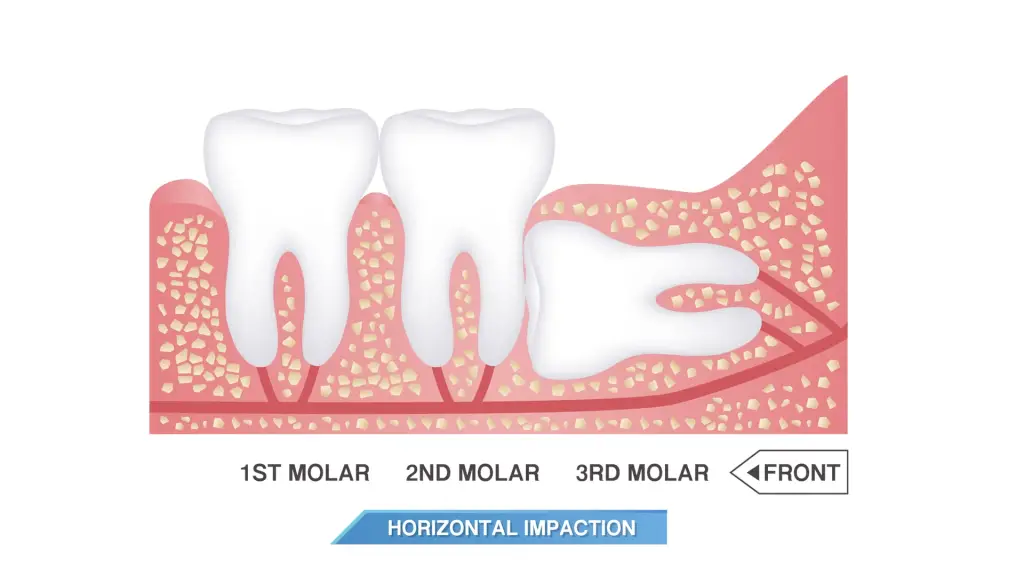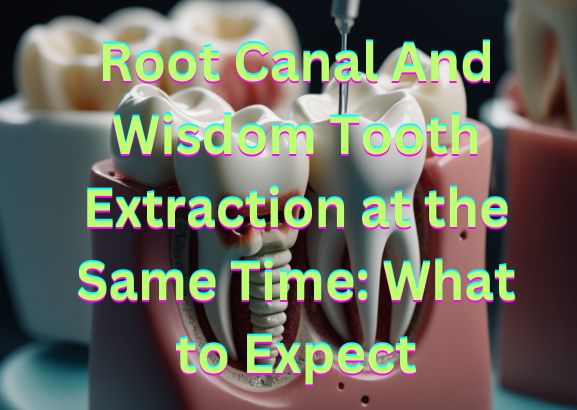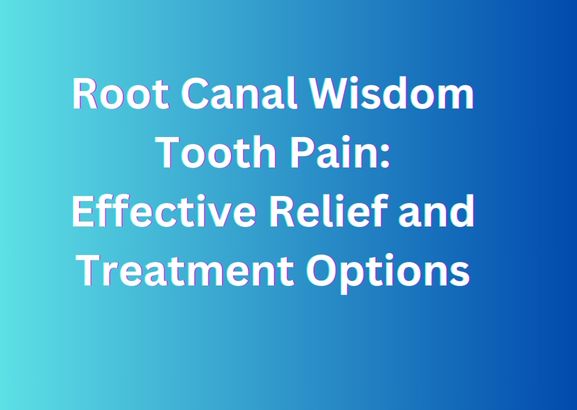Does Everyone Have Wisdom Teeth?
Yes, everyone has wisdom teeth. They are the third set of molars that typically emerge during late adolescence or early adulthood.
Wisdom teeth, also known as third molars, are a normal part of dental development for most individuals. These teeth are located at the very back of the mouth, one on each side of the upper and lower jaw. While some people may have all four wisdom teeth, others may have fewer or none at all.
The emergence of wisdom teeth can be accompanied by various issues such as crowding, impaction, or misalignment, which may require their removal. Regular dental check-ups and x-rays can determine the presence and position of wisdom teeth, allowing for appropriate management and treatment if necessary.
Wisdom Teeth 101: What You Need To Know
Wisdom teeth, also known as third molars, are not present in everyone’s mouth. They are the last set of teeth to develop and typically emerge between the ages of 17 and 25. These teeth served a purpose in our ancestors, who needed the extra chewing power to process a tougher diet.
However, with the evolution of our diet and the reduction in jaw size, wisdom teeth have become unnecessary. The function of wisdom teeth is now debatable, as some argue that they have no significant role in chewing or overall oral health.
Despite this, there are common myths and misconceptions surrounding wisdom teeth, such as the belief that everyone must have them removed. It is important to consult with a dental professional to determine if wisdom teeth extraction is necessary based on individual circumstances.
The Basics Of Wisdom Teeth

Wisdom teeth are a common dental concern among individuals. These teeth, also known as third molars, typically develop and emerge during late adolescence or early adulthood. They are located at the back of the mouth, behind the second molars. Wisdom teeth can cause various issues, such as overcrowding, impaction, and discomfort.
Not everyone has wisdom teeth, and the number of wisdom teeth can vary from person to person. While some individuals may have all four wisdom teeth, others may have fewer or none at all. Dentists often recommend the removal of wisdom teeth if they pose a risk to oral health or if they cause persistent problems.
Regular dental check-ups can help determine the presence and condition of wisdom teeth, ensuring appropriate management and oral care.
The Purpose And Function Of Wisdom Teeth
Wisdom teeth, also known as third molars, are not present in everyone. Evolutionary theory suggests that our ancestors needed larger jaws to accommodate these teeth, but as our diets changed, there was no longer a need for them. The purpose of wisdom teeth was to aid in chewing and grinding food, especially tough and coarse items.
However, due to advancements in cooking and food preparation, our jaws have become smaller, resulting in a lack of space for these extra teeth. It is believed that this structural change in our jaws is the reason why many people experience problems with wisdom teeth, such as impacted teeth or overcrowding.
So, while not everyone has wisdom teeth, their presence or absence is influenced by our evolutionary history and the changes in our diets and jaw structure.
Common Myths And Misconceptions About Wisdom Teeth
Wisdom teeth, also known as third molars, are not present in every individual. These teeth, which typically erupt in late adolescence or early adulthood, can cause various dental issues. One common myth is that everyone has wisdom teeth, but that’s not true.
Another misconception is that wisdom teeth cause crowding of other teeth, although this is not always the case. The truth is that the necessity for wisdom teeth removal depends on factors such as their alignment, impaction, and potential complications. Regular dental check-ups and x-rays can help determine if removal is required.
It’s essential to consult with a dentist to assess the specific situation and make an informed decision about wisdom teeth extraction.
Not Everyone Has Wisdom Teeth: Understanding The Variations
Not everyone has wisdom teeth. Agenesis and hypodontia are conditions where these teeth are missing. The prevalence of missing wisdom teeth varies among individuals. Genetic factors play a role in the absence of these teeth.
An Overview Of Agenesis And Hypodontia
Wisdom teeth, also known as third molars, may not develop in everyone. Agenesis and hypodontia are conditions where certain teeth are missing. These conditions can be caused by genetic factors or developmental abnormalities. Agenesis refers to the complete absence of a tooth, while hypodontia refers to the absence of one or a few teeth.
Missing teeth can be classified based on their location and severity. The impact of missing teeth on oral health can vary, depending on factors such as the position and function of the tooth. It can cause problems with chewing, speech, and proper alignment of the jaw.
Maintaining good oral hygiene and regular dental check-ups are crucial for managing the effects of missing teeth and ensuring overall oral health.
Prevalence Of Missing Wisdom Teeth
Wisdom teeth exist in almost everyone’s mouth, but some individuals may be missing them. Prevalence can vary. Statistics reveal that a percentage of people do not have wisdom teeth. Factors like genetics and evolution influence the presence or absence of these teeth.
Moreover, regional and racial differences can affect wisdom teeth development. It’s fascinating to observe these variations in populations across the globe. From various studies, we gain insights into why some individuals lack wisdom teeth. Cultural factors and dietary changes may also play a role in this dental evolution.
Understanding these factors can help us appreciate the diversity in human anatomy and oral health.
Genetic Factors And The Absence Of Wisdom Teeth
Wisdom teeth, also known as third molars, are not present in everyone due to genetic factors. Genes play a crucial role in determining whether a person will have wisdom teeth or not. Research has identified specific genes associated with the presence or absence of these teeth.
Dental arch size and jaw development genes also influence the formation of wisdom teeth. Inheritance patterns have been studied to better understand the genetic basis of this trait. By analyzing family histories and conducting genetic research, scientists have gained insights into the complex nature of wisdom teeth.
So, whether or not you have wisdom teeth can be attributed to your unique genetic makeup and the interplay of various genes responsible for dental development.
Wisdom Teeth Complications: Risks And Treatment Options
Wisdom teeth, also known as third molars, are not present in everyone. Their emergence varies. Wisdom teeth complications can lead to various problems. Impacted wisdom teeth may cause pain, swelling, and difficulty in opening the mouth. Treatment options include extraction if the wisdom teeth are causing discomfort or affecting oral health.
In some cases, monitoring the situation and taking preventive measures may be recommended. Consultation with a dentist is necessary to determine the best course of action. Regular dental check-ups can help identify any potential issues with wisdom teeth early on.
Awareness of common problems associated with wisdom teeth can help individuals make informed decisions about their oral health. Immediate attention and proper treatment can prevent further complications and maintain oral well-being.
Common Problems Associated With Wisdom Teeth
Wisdom teeth, the third molars that usually erupt in the late teens or early twenties can cause a variety of problems. Impacted wisdom teeth occur when there is not enough space for them to fully emerge. Overcrowding and misalignment of teeth can result from this.
Inflammation and infection can also occur around wisdom teeth, causing pain and discomfort. These problems often require the extraction of the wisdom teeth to alleviate the symptoms and prevent further complications. Regular dental check-ups can help identify potential issues with wisdom teeth early on, leading to prompt treatment and prevention of complications.
If you are experiencing pain or discomfort in your back teeth, it’s essential to consult with your dentist to determine if wisdom teeth are the cause. Early intervention can save you from unnecessary pain and oral health problems in the future.
So, don’t ignore the signs and take care of your wisdom teeth!
Signs And Symptoms Of Impacted Wisdom Teeth
Wisdom teeth are not present in everyone’s mouth, and their absence doesn’t signify any issue. If you do have wisdom teeth, they can sometimes become impacted, causing various problems. One sign of impacted wisdom teeth is pain or discomfort in the back of the mouth.
Another indication is swelling and redness of the gums surrounding the affected area. You may also experience difficulty in opening your mouth or chewing. These symptoms may be accompanied by bad breath or an unpleasant taste in the mouth. In some cases, impacted wisdom teeth can even lead to infection or damage to neighboring teeth.
If you’re experiencing any of these signs, it’s essential to consult a dentist for proper evaluation and guidance.
Treatment Options For Wisdom Teeth Complications
Wisdom teeth, also known as third molars, are not present in everyone. These teeth usually emerge between the ages of 17 and 25. When it comes to complications, monitoring and observation are essential. Dentists track the growth and positioning of wisdom teeth through regular check-ups and X-rays.
If any problems arise, extraction procedures may be necessary. Wisdom teeth removal can be done surgically or through simple extractions, depending on the complexity. Post-operative care is crucial for a smooth recovery. Patients are advised to follow specific guidelines, such as avoiding hard or hot foods, maintaining oral hygiene, and taking prescribed pain medications.
Overall, monitoring, extraction, and proper post-operative care are essential for managing wisdom teeth complications successfully.
Frequently Asked Questions For Does Everyone Have Wisdom Teeth
Do All People Have Wisdom Teeth?
Not everyone has wisdom teeth. It’s estimated that about 35% of people are born without them. In some cases, the wisdom teeth may not fully develop or may not erupt through the gums, causing any problems. Regular dental check-ups can help determine the presence or absence of wisdom teeth.
What Are The Functions Of Wisdom Teeth?
Wisdom teeth, also known as third molars, were useful to our ancestors for chewing raw and rough food. However, with our modern diet and improved dental hygiene, wisdom teeth have become less necessary. They often cause problems like overcrowding, impaction, and misalignment, leading to pain and potential oral health issues.
When Do Wisdom Teeth Usually Emerge?
Most commonly, wisdom teeth start to emerge between the ages of 17 and 25. However, the timing can vary from person to person. Some individuals may have their wisdom teeth erupt earlier or later, while others may not develop them at all.
Dental consultation can determine the timeline for your specific situation.
Conclusion
The presence or absence of wisdom teeth varies from person to person. While most individuals do develop wisdom teeth, some may never experience their eruption. The development of wisdom teeth is a natural occurrence that may cause discomfort and complications, leading to the need for extraction in some cases.
However, advancements in dental care have made it possible for dental professionals to monitor and address wisdom teeth issues more effectively. Regular dental check-ups and x-rays can help detect potential problems early on, allowing for timely intervention if necessary. It is important to consult with a dental professional to determine the best course of action for your individual situation.
Remember, taking care of your oral health through proper dental hygiene practices is crucial to maintaining a healthy mouth and preventing potential complications related to wisdom teeth.



